About the Author
Having been persuaded by Platos Republic that Justice requires the philosopher to go back down into the Cave, William Henry Furness Altman devoted his professional life to the cause of public education; since retiring in 2013, he has been working as an independent scholar on Cicero and the continuation of Plato the Teacher. Born in Washington, DC, where he was educated at the Sidwell Friends School, and with degrees in philosophy from Wesleyan University, the University of Toronto, and the Universidade Federal de Santa Catarina, he was a public high school teacher in Vermont, California, Massachusetts, Connecticut, and Virginia; between 1980 and 2013 he taught social studies, history, philosophy, English, drama, and Latin as well as offering extra-curricular instruction in Ancient Greek. He began publishing scholarly articles in philosophy, intellectual history, and classics in 2007; his Plato the Teacher: The Crisis of the Republic, third of a five-volume study of the reading order of Platos dialogues, was published by Lexington Books in 2012; by that reckoning, this book constitutes the fifth volume with the fourth having appeared earlier this year, likewise published by Lexington, as The Guardians in Action: Plato the Teacher and the Post-Republic Dialogues from Timaeus to Theaetetus. With the publication of Friedrich Wilhelm Nietzsche: The Philosopher of the Second Reich (Lexington, 2013) he completed A German Trilogy that includes Martin Heidegger and the First World War: Being and Time as Funeral Oration (Lexington, 2012) and his first book, The German Stranger: Leo Strauss and National Socialism (Lexington, 2011). He is also the author of The Revival of Platonism in Ciceros Late Philosophy: Platonis aemulus and the Invention of Cicero (Lexington, 2016) and the editor of Brills Companion to the Reception of Cicero (Brill, 2015). He has two sons, Philip and Elias, two grandchildren, and is married to Zoraide; they currently reside in Florianpolis, the island capital of Santa Catarina (Brasil).
The Guardians on Trial
Published by Lexington Books
An imprint of The Rowman & Littlefield Publishing Group, Inc.
4501 Forbes Boulevard, Suite 200, Lanham, Maryland 20706
www.rowman.com
Unit A, Whitacre Mews, 26-34 Stannary Street, London SE11 4AB
Copyright 2016 by Lexington Books
All rights reserved. No part of this book may be reproduced in any form or by any electronic or mechanical means, including information storage and retrieval systems, without written permission from the publisher, except by a reviewer who may quote passages in a review.
British Library Cataloguing in Publication Information Available
Library of Congress Cataloging-in-Publication Data
Names: Altman, William H. F., 1955- author.
Title: The guardians on trial : the reading order of Plato's Dialogues from Euthyphro to Phaedo / William H. F. Altman.
Description: Lanham : Lexington Books, 2016. | Includes bibliographical references and index.
Identifiers: LCCN 2016007531 (print) | LCCN 2016008540 (ebook) | ISBN 9781498529518 (cloth : alk. paper) | ISBN 9781498529525 (Electronic)
Subjects: LCSH: Plato. Dialogues.
Classification: LCC B395 .A555 2016 (print) | LCC B395 (ebook) | DDC 184--dc23
LC record available at http://lccn.loc.gov/2016007531
 The paper used in this publication meets the minimum requirements of American National Standard for Information SciencesPermanence of Paper for Printed Library Materials, ANSI/NISO Z39.48-1992.
The paper used in this publication meets the minimum requirements of American National Standard for Information SciencesPermanence of Paper for Printed Library Materials, ANSI/NISO Z39.48-1992.
Printed in the United States of America
in memoriam
Juan Roura-Parella (1897-1983)
who hammered into my head
the truth about Parmenides
And thus among those things that would lead our thought toward the vision of what is would be the study of the One [ ].
Republic 525a1-2
Dont move the immovables [ ].
Laws 684e1; cf. 842e9-843a1, and 913b9
The Battle Hymn of the Republic
And is not this true of the good [ ] likewise: that the man who is unable to define [] in his discourse [], abstracting [] from all other things [ ] the idea of the good [ ], and who cannot, as if in battle [ ], through all refutations [] emerging, not eager to refute [ ] by recourse to opinion [] but to being [], proceeding throughout in all of these with the discourse [ ] un-toppledthe man who lacks this power, you will say, does not really know the good itself [ ] or any other good, but that if he joins himself [] in any way to some image [], he does so [ again] by reputation [] but not knowledge [], dreaming [] and dozing through his present life, and before he awakens [] here, he will arrive at the house of Hades and fall asleep for ever?
Republic 534b8-d1
Acknowledgements
In the spring of 1976, Juan Roura-Parella, by then a professor emeritus of Romance Languages at Wesleyan University and almost eighty, offered a course called Art Style and World-view, the thesis of which, roughly, was that Modern Art had revived Presocratic philosophy. Roura-Parella applied the same question to each of the ancient thinkers, posed in a marvelously ungrammatical English, and spoken with a strong Catalonian accent: Who exist? Who is the Being? What made this funnier was that he pronounced the Being as dee Bean, and it would be fair to say that an imitation of him became in later years a frequent theme for laughter. Although Mr. Forsyth had explained to me in tenth grade that true words are often spoken between false teeth, there was little evidence that this lesson had been learned by the humorist who used Roura-Parellas version of Parmenidess answer, in particular, as a punch-line: Bean exist; Bean is dee Bean. Particularly laughable, both to me and to my audience, was the fact that he always prefaced this tautological solecism with the very same words: very, very, very, great man, Parmenides; Plato call him: dee great Parmenides. Finding little evidence of this great Parmenides in the dialogues as I was taught them in college or universityincluding Parmenides itselfthese well-remembered words were nothing but a joke until the moment, decades later, when the thought occurred to me that Timaeus was Platos version of his great teachers Way of Opinion. It turns out that Roura-Parella had, like Socrates before him, left his stinger behind, and were it not for him, this improbable notion could never of a sudden take such hold; it is therefore to the cherished memory of this humane, inspiring, and brilliant European intellectualmore at home in German than in Englishthat I dedicate this book.
I have many others to thank, beginning with those closest to this project in a physical sense. To the professionals at Rowman & Littlefield and also to the professional readers they found to review and write endorsements, I owe more than I can say; thanks in particular to Jana Hodges-Kluck, Rachel Weydert, Laura Chappell, and Joseph Parry, along with Richard Foley, Christopher Long, Avi Mintz, and Anne-Marie Schultz. Others who were kind enough to read and comment are Alfonso Flrez, Topher Kurfess, Lidia Palumbo, and Michael Wiitala. As always, I am also grateful to Mitch Miller and Roslyn Weiss, for their ongoing support and encouragement. Noburo Notomi was also very kind to me, and others in the academy I need to thank are Kathy Eden, Leonardo Tarn, Sophia Stone, Maicon Engler, Fernando Rey Puente, and Matthew Sharpe.
And then there is my family, including my two precious grandchildren Eliza and James; they have been a source of inspiration and delight thanks to the flood of messages and pictures sent to me by their wonderful mother Erin Rafferty and my son Philip, the true Mr. Altman. From my son Elias, I have received not only familial but also technological support; truly he is both Doctor and Wizard. Along with the delightful Betsy West and my faux bro Oren Jacoby, Eli made my summertime research-visit to New York both possible and fun; others in my family whose help has encouraged me are David Haley, Katherine Hite, Leslie Rescorla, and Julie Roberts. My parents Oscar L. Altman and Adeline F. Furness remain with me at every step, and the drama of ideas into which their improbable union plunged me is the motor force behind this book: without the God of my Fathers, Id have been lost in a maze of mystical monism. On my mind today are the childhood friend of my namesake W. H. Furness and also his son Frank, my great-grandfather; it is amusing to discover how little is really ones own. Finally, as the daily source of my inspiration, and the spiritual as well as physical basis of my life as a scholar, stands my beloved wife Zoraide: your bright-eyed delight, passion, caution, and loving support command my respect, gratitude, and love; for all that you have done to make this book possible, my darling, there are no unsung words.


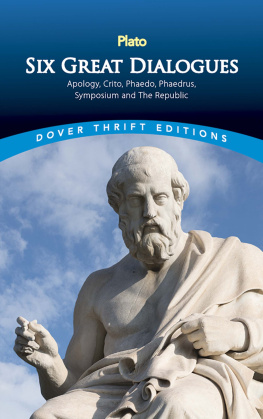
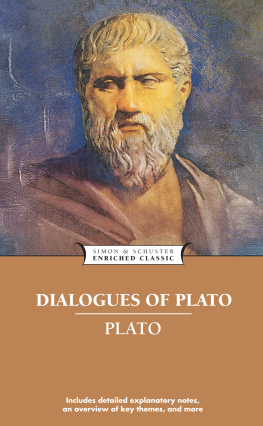
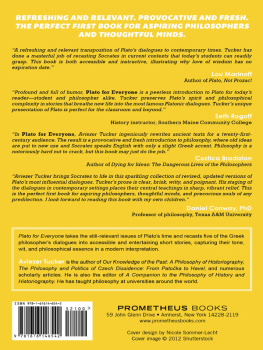
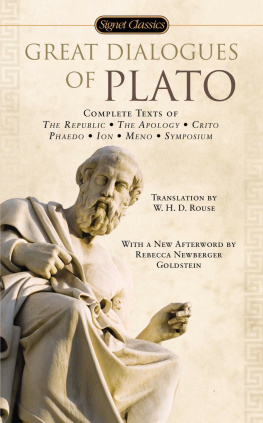
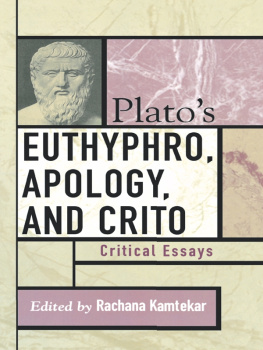

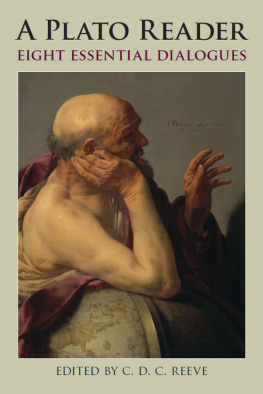
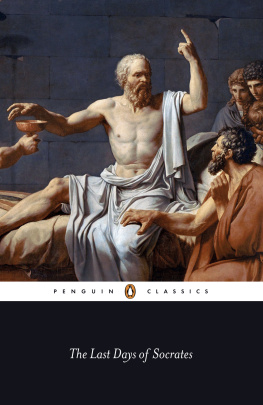
 The paper used in this publication meets the minimum requirements of American National Standard for Information SciencesPermanence of Paper for Printed Library Materials, ANSI/NISO Z39.48-1992.
The paper used in this publication meets the minimum requirements of American National Standard for Information SciencesPermanence of Paper for Printed Library Materials, ANSI/NISO Z39.48-1992.